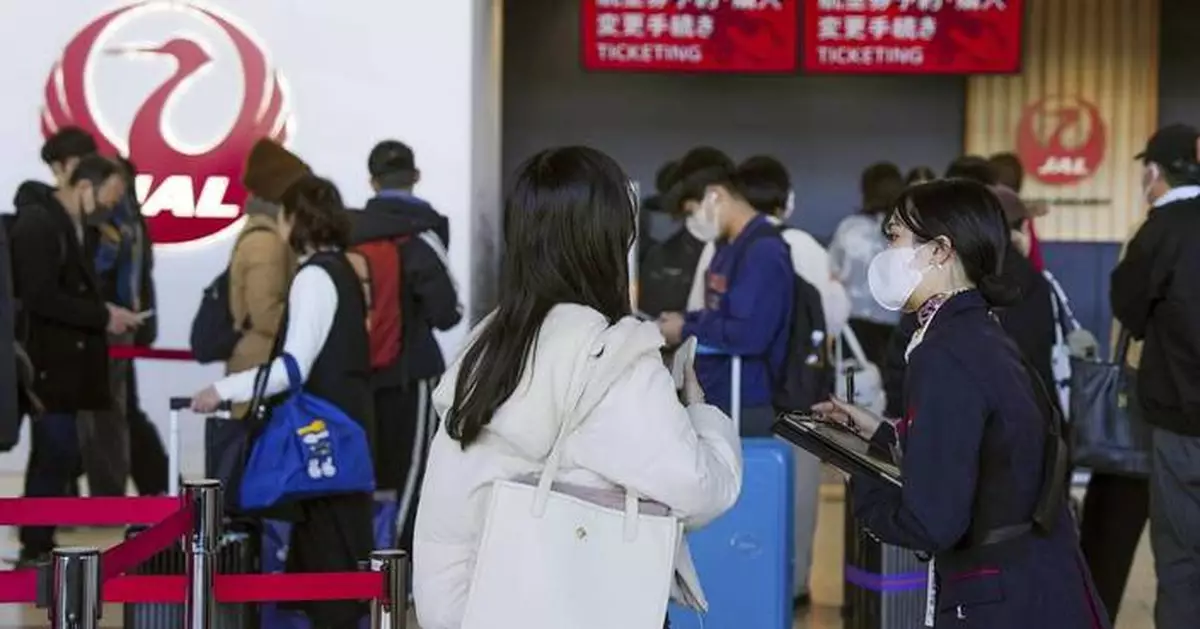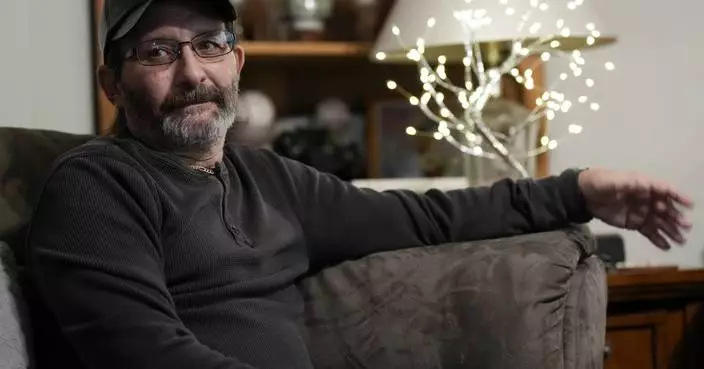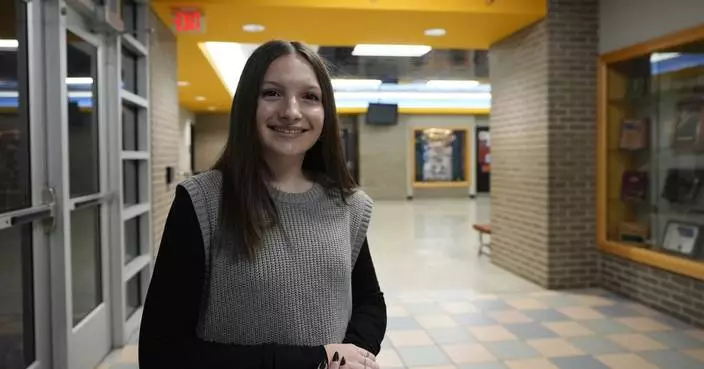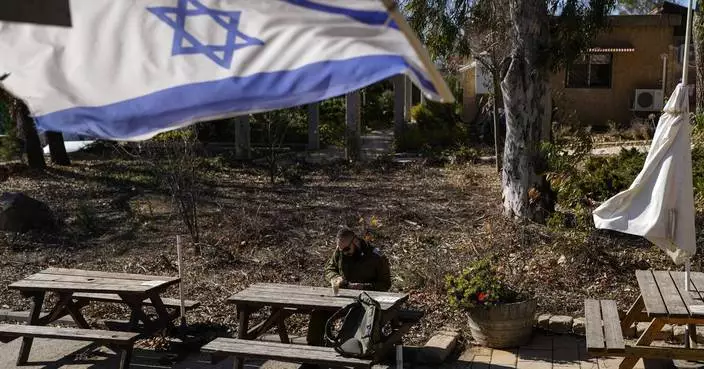TOKYO (AP) — Japan Airlines said it was hit by a cyberattack Thursday, causing delays to more than 20 domestic flights but the carrier said it was able to stop the onslaught and restore its systems hours later. There was no impact on flight safety, it said.
JAL said the problem started Thursday morning when the company's network connecting internal and external systems began malfunctioning.
The airline said it was able to identify the cause as an attack intended to overwhelm the network system with massive transmissions of data. Such attacks flood a system or network with traffic until the target cannot respond or crashes.
The attack did not involve a virus or cause any customer data leaks, JAL said. It said that as of late morning, the cyberattack had delayed 24 domestic flights for more than 30 minutes.
Experts have repeatedly raised concerns about the vulnerability of Japan's cybersecurity, especially as the country steps up its defense capabilities and works more closely with the United States and other partners with much tighter cyber defenses. Japan has taken steps but experts say more work is needed.
In June, Japan's space agency said it had suffered a series of cyberattacks since 2023, though sensitive information related to rockets, satellites and defense was not affected. It was investigating to take preventive measures. Last year, a cyberattack paralyzed operations at a container terminal at a port in the city of Nagoya for three days.
JAL's ticket sales for both domestic and international fights scheduled for departure on Thursday were suspended temporarily but resumed several hours later.
Chief Cabinet Secretary Yoshimasa Hayashi told a regular news conference Thursday that the transport ministry told JAL to hasten efforts to restore the system and to accommodate affected passengers.
Other Japanese airlines, including ANA Holdings, Skymark and Starflyer, were not affected.
Television footage showed many passengers at Tokyo's Haneda airport crowded into its terminals as the attack hit the year-end holiday travel season. Offices will close from this weekend for the New Year holidays, the biggest celebration of the year, when millions of people travel back to their hometowns from the cities.
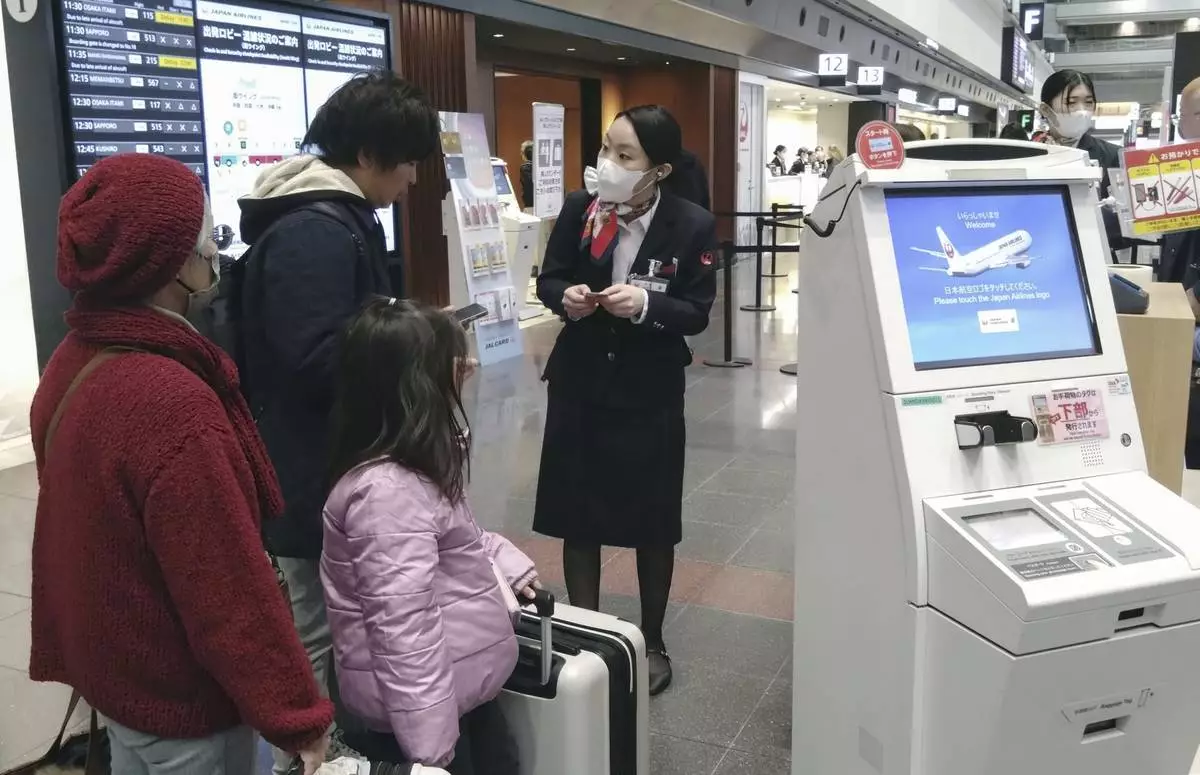
A staff member of Japan Airlines helps customers at the Haneda airport in Tokyo, Thursday, Dec. 26, 2024, after the airlines said it was hit by a cyberattack. (Shingo Fukuma/Kyodo News via AP)
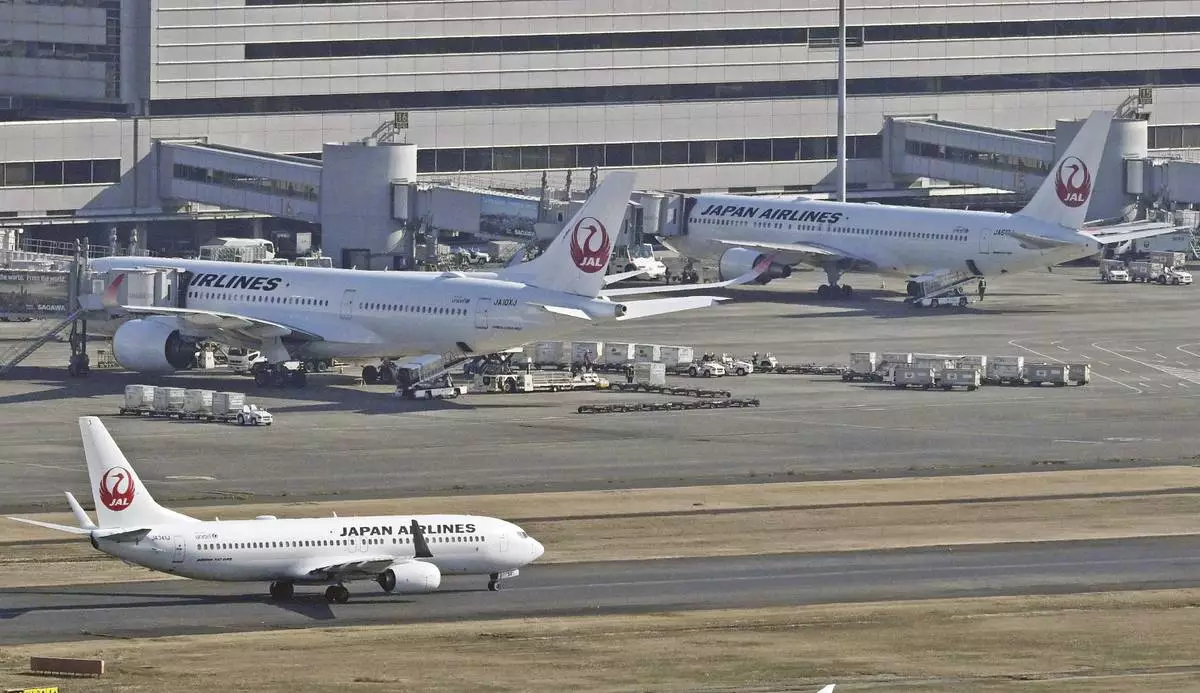
Japan Airlines aircraft are seen at Tokyo's Haneda airport Thursday, Dec. 26, 2024, after the airlines said it was hit by a cyberattack. (Kyodo News via AP)
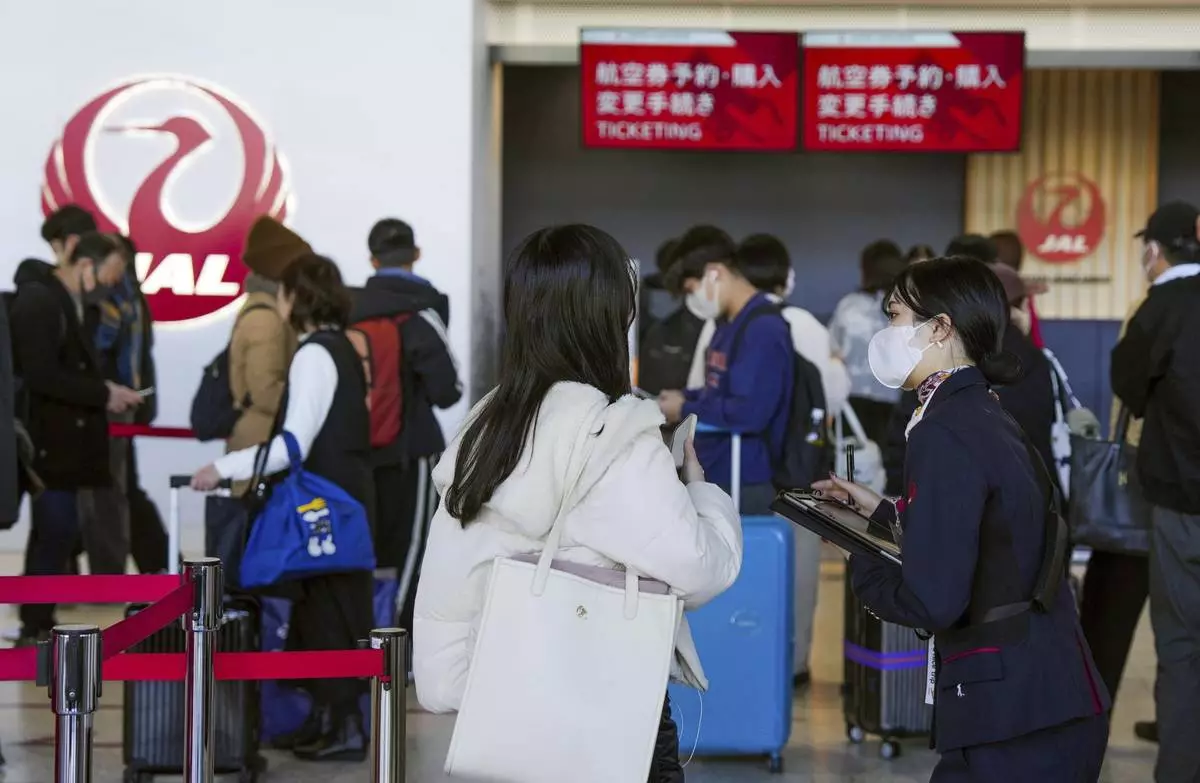
A staff member of Japan Airlines helps customers at Osaka International Airport on the outskirts of Osaka, western Japan, Thursday, Dec. 26, 2024, after the airlines said it was hit by a cyberattack. (Nobuki Ito/Kyodo News via AP)
ZAMALKA, Syria (AP) — A Syrian family that survived a 2013 chemical weapons attack that killed hundreds of people near the country’s capital, Damascus, says the ordeal they experienced haunts them to this day.
The Aug. 21, 2013 attack targeted several Damascus suburbs, including Zamalka, where the Arbeeni family lives. Government forces of then-President Bashar Assad were blamed for the attack.
The Arbeenis remember how they locked themselves inside a windowless room in their home for hours, escaping the fate of dozens of their neighbors who perished in what was one of the deadliest moments of Syria’s civil war.
The gas that was used — sarin, an extremely toxic nerve agent — can kill in minutes.
The Syrian government denied it was behind the attack and blamed opposition fighters, an accusation the opposition rejected as Assad's forces were the only side in the brutal civil war to posses sarin. The United States subsequently threatened military retaliation, with then-President Barack Obama saying Assad’s use of chemical weapons would be Washington’s “red line.”
“It was a horrifying night,” Hussein Arbeeni, 41, told The Associated Press on Wednesday.
The surface-to-surface missiles fell close to his family’s home without exploding, instead leaking the poisonous gas. Shortly after that, he says the family members had difficulties breathing, their eyes started to ache and they hearts beat faster and faster.
Arbeeni, his parents, his siblings and their families, as well as a neighbor — 23 people in all — rushed into the only room in their home without windows and closed the door.
He says he taped all around the door, soaked some clothes in water and rolled them up under the door to prevent the gas from coming in. “I even taped the key hole,” he said.
A few months earlier, Arbeeni said, the local first responders of the Syrian Civil Defense, also known as White Helmets, had instructed residents in the opposition-held suburbs of Damascus what to do in case of a chemical attack.
He remembers them saying they should cover their nose and mouth with a cloth soaked in water with white vinegar, and breathe through that.
They huddled for three hours inside the room — time that seemed endless that night. Outside, many people were dying.
“It is all because of God and this locked room,” Arbeeni says of their survival.
Around daybreak, the White Helmets members rushed into their house, found the family inside the room on the ground floor and told them to leave the area immediately.
They ran into the street and saw dead bodies lying all around. A passing truck took the family on and gave them a ride. Their neighbor, who had fainted from the shock of the horrific scene, was taken away by paramedics.
“I was scared to look,” said Arbeeni’s mother, Khadija Dabbas, 66.
The family stayed for a few weeks some miles away from Zamalka but then came back.
Despite Obama's threat, in the end, Washington settled for a deal with Moscow for Russia-backed Assad to give up his chemical weapons’ stockpile.
But Assad's government was widely believed to have kept some of the weapons and was accused of using them again — including a 2018 chlorine gas attack over Douma, another Damascus suburb, that killed 43 people.
Today, Arbeeni — remembering all the neighbors, friends and townspeople who perished — says he wants the “harshest punishment” for those behind the attack in Zamalka.
“All those children and innocent people who were killed should get justice,” he said, looking at his 12-year-old son, Laith, a baby at the time of the attack.
The new authorities in Syria are led by the jihadi group Hayat Tahrir al-Sham, or HTS, which late last month launched a stunning offensive from its northwestern stronghold that blitzed across large swaths of Syria and toppled Assad. They have vowed to bring to justice former Syrian government officials blamed for atrocities.
But times are still unsettled — a few short weeks after Assad's ouster, no one knows what Syria's future will look like.
“The overthrow of the Assad government creates the possibility of justice for thousands of victims of atrocities, including those killed by chemical and other banned weapons,” says Adam Coogle, deputy director with the Middle East and North Africa division at Human Rights Watch.
“But justice will only happen if the new authorities prioritize it and urgently act to preserve evidence,” Coogle added. He urged for immediate access for U.N. agencies and international experts who would create a comprehensive plan to ensure that Syrians can seek justice and accountability.
On Wednesday, about a dozen people visited the Martyrs Cemetery in Zamalka and the graves of people from the area killed during Syria's nearly 14-year war.
Arbeeni's brother, Hassan, pointed to part of the cemetery that holds a mass grave. There are no names of the dead there, only a sign in Arabic that reads: “August 2013.”
“The martyrs of the chemical attack are here," Hassan said, and recited a Muslim prayer for the dead.
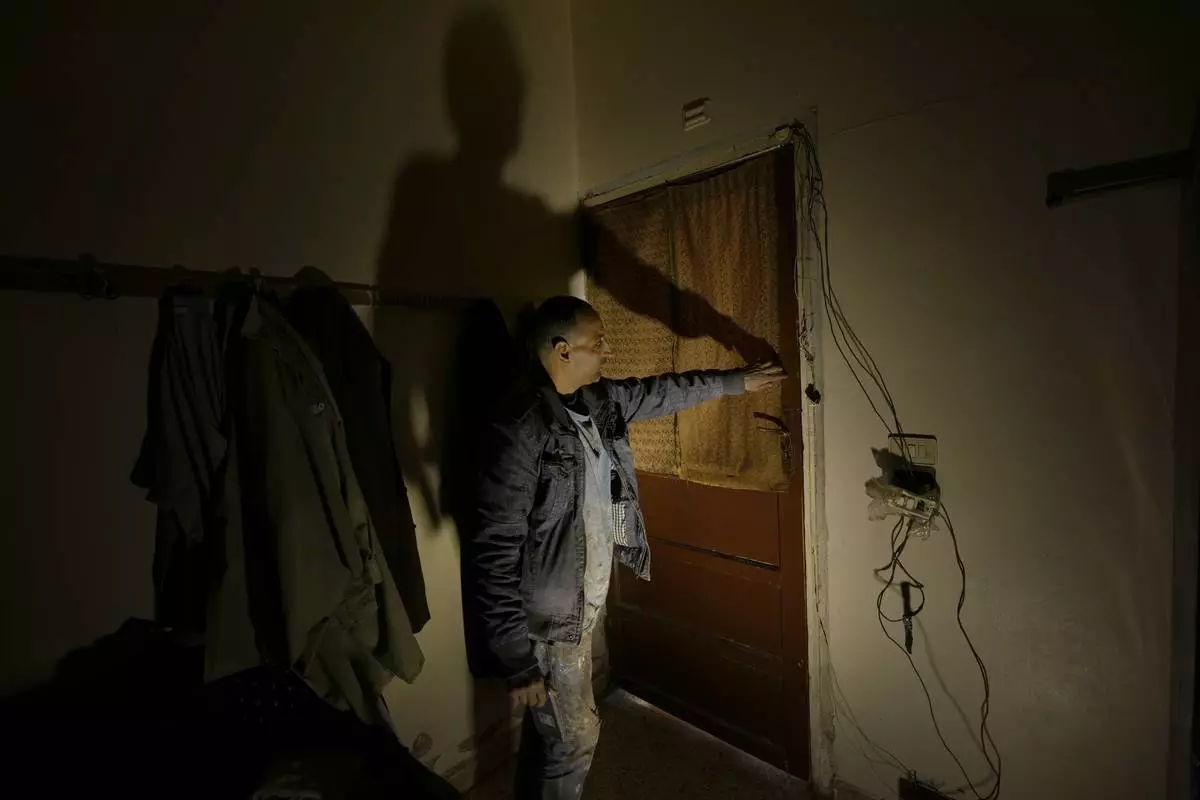
Hussein Arbeeni, 41, shows how he blocked a room door by tapes where 23 people locked themselves inside it to prevent leakage of the sarin struck during a 2013 chemical weapons attack that was blamed on then President Bashar Assad's forces, in Zamalka neighbourhood, on the outskirts of Damascus, Syria, Wednesday, Dec. 25, 2024. (AP Photo/Hussein Malla)
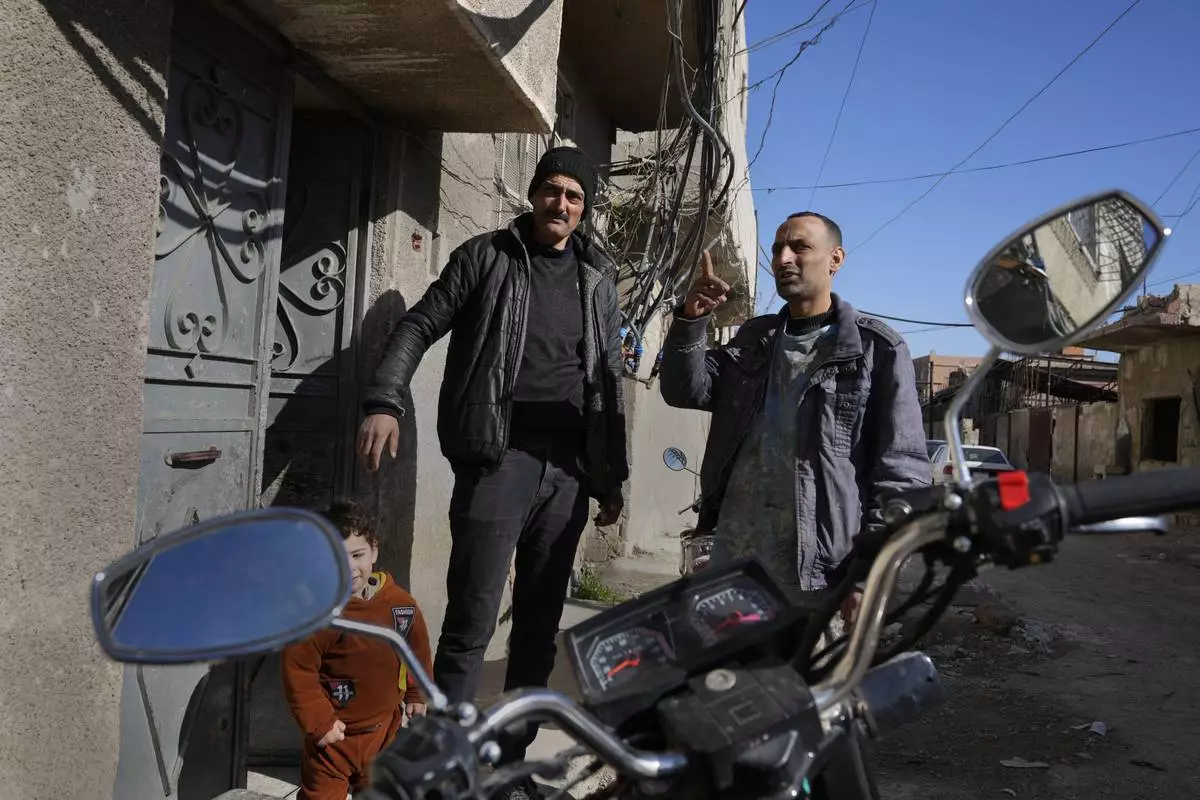
Hussein Arbeeni, 41, right, speaks with his brother Hassan Arbeeni, 42, right, outside their house at an alley that was hit by the sarin struck during a 2013 chemical weapons attack that was blamed on then President Bashar Assad's forces, in Zamalka neighbourhood, on the outskirts of Damascus, Syria, Wednesday, Dec. 25, 2024. (AP Photo/Hussein Malla)
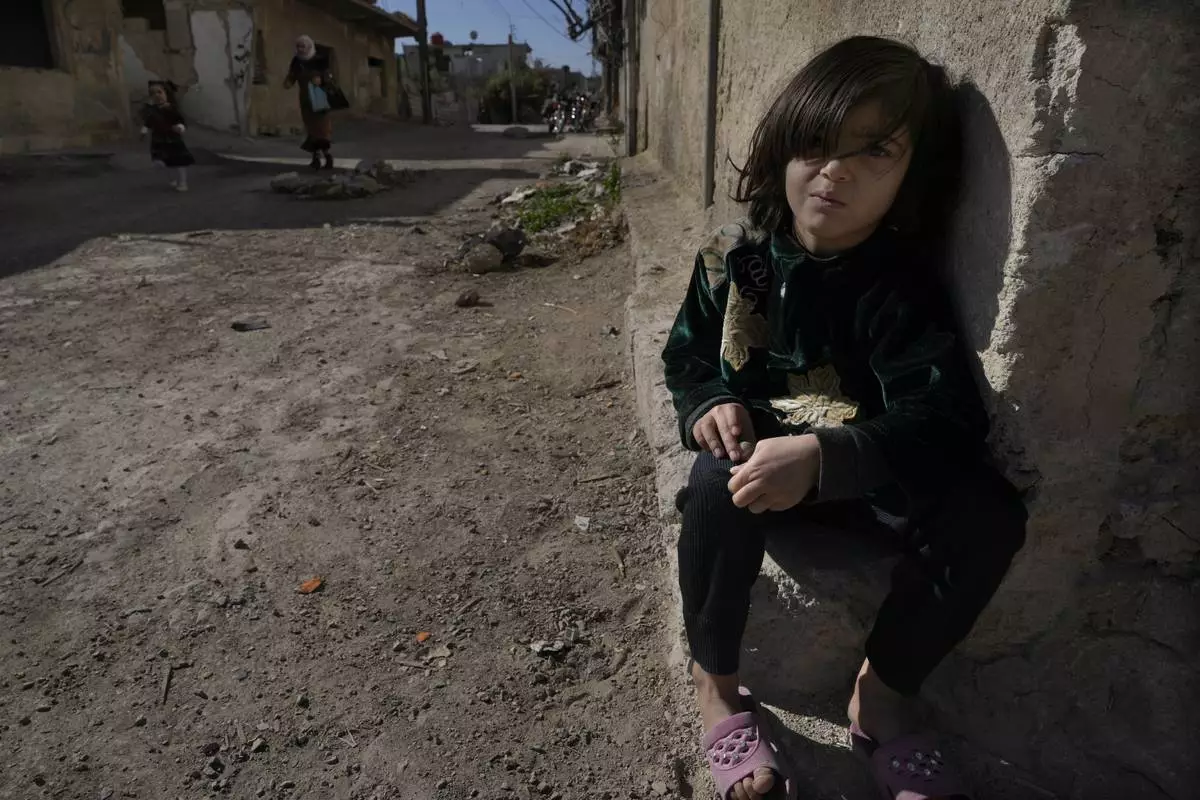
A Syrian girl sits next of her parent house, at an alley that was hit by the sarin struck during a 2013 chemical weapons attack that was blamed on then President Bashar Assad's forces, in Zamalka neighbourhood, on the outskirts of Damascus, Syria, Wednesday, Dec. 25, 2024. (AP Photo/Hussein Malla)
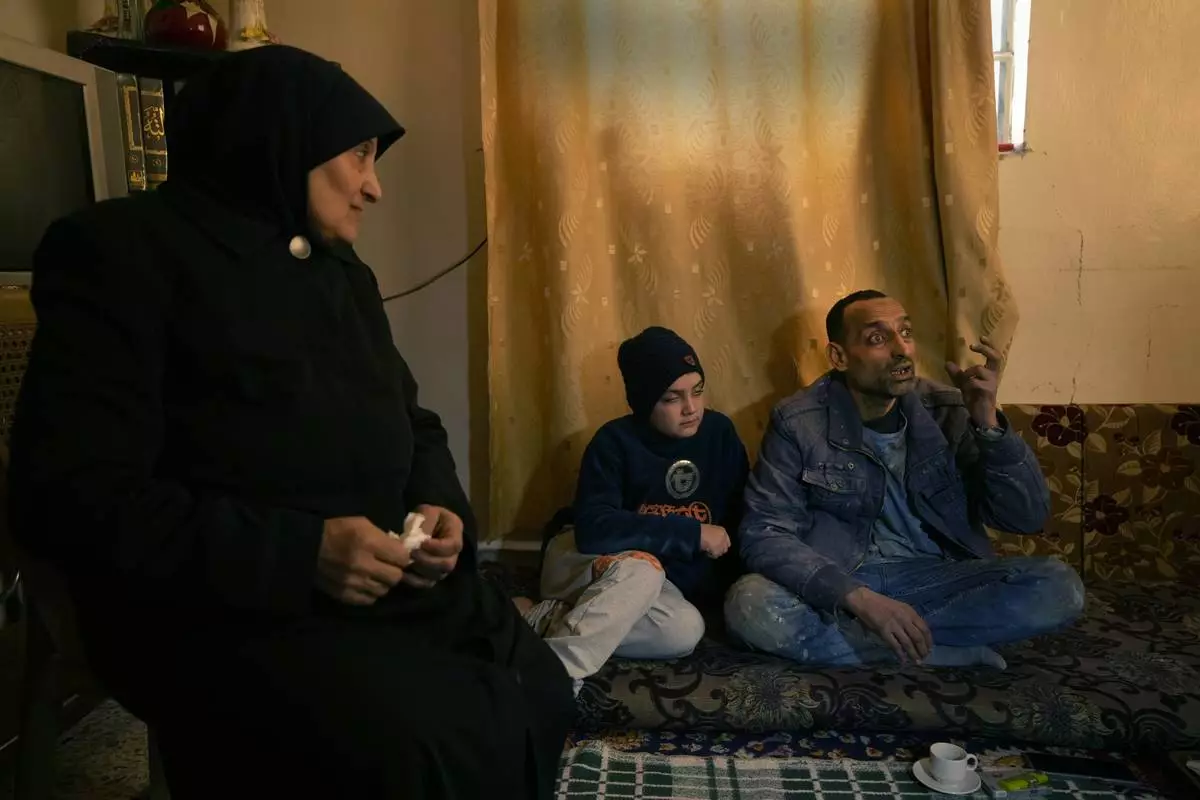
Hussein Arbeeni, 41, right, sits next of his mother mother Khadija Dabbas, 66, left, as he explains how he and his family suffered from the sarin struck during a 2013 chemical weapons attack that was blamed on then President Bashar Assad's forces, in Zamalka neighbourhood, on the outskirts of Damascus, Syria, Wednesday, Dec. 25, 2024. (AP Photo/Hussein Malla)
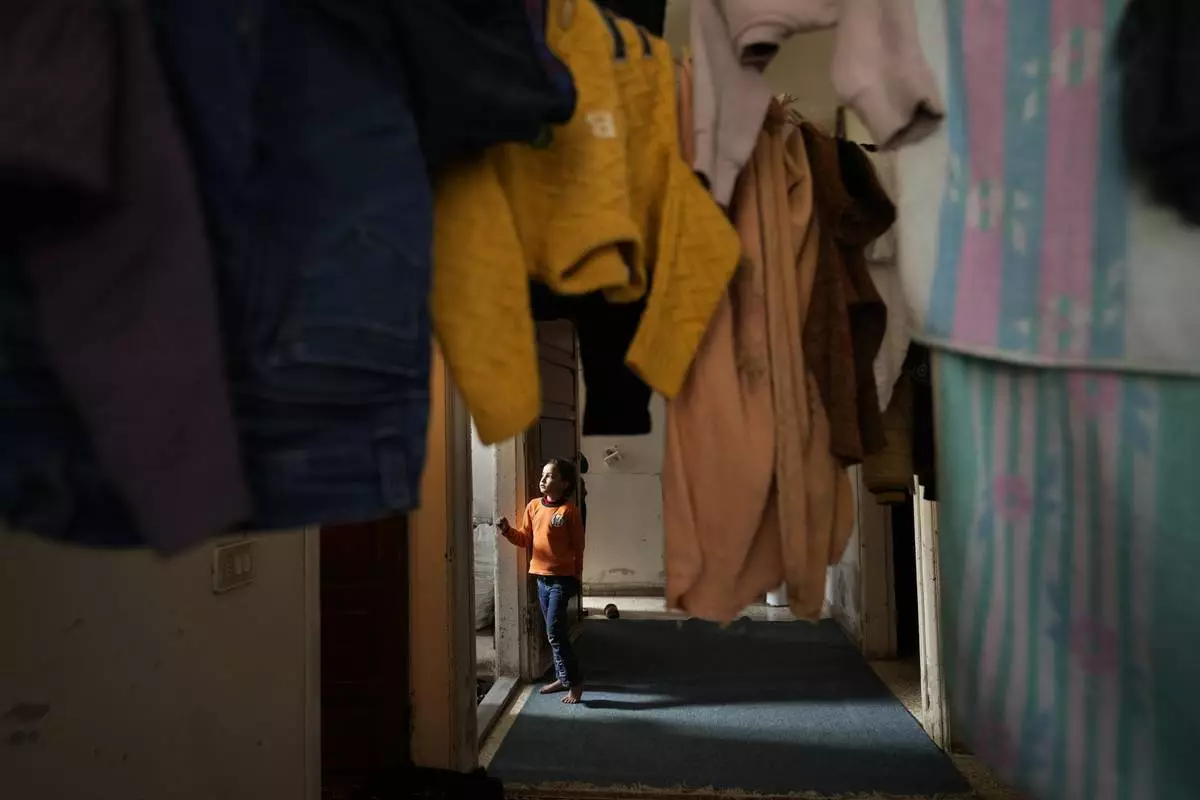
A girl stands at the entrance of her family house who survived from the sarin struck during a 2013 chemical weapons attack that was blamed on then President Bashar Assad's forces, in Zamalka neighbourhood, on the outskirts of Damascus, Syria, Wednesday, Dec. 25, 2024. (AP Photo/Hussein Malla)
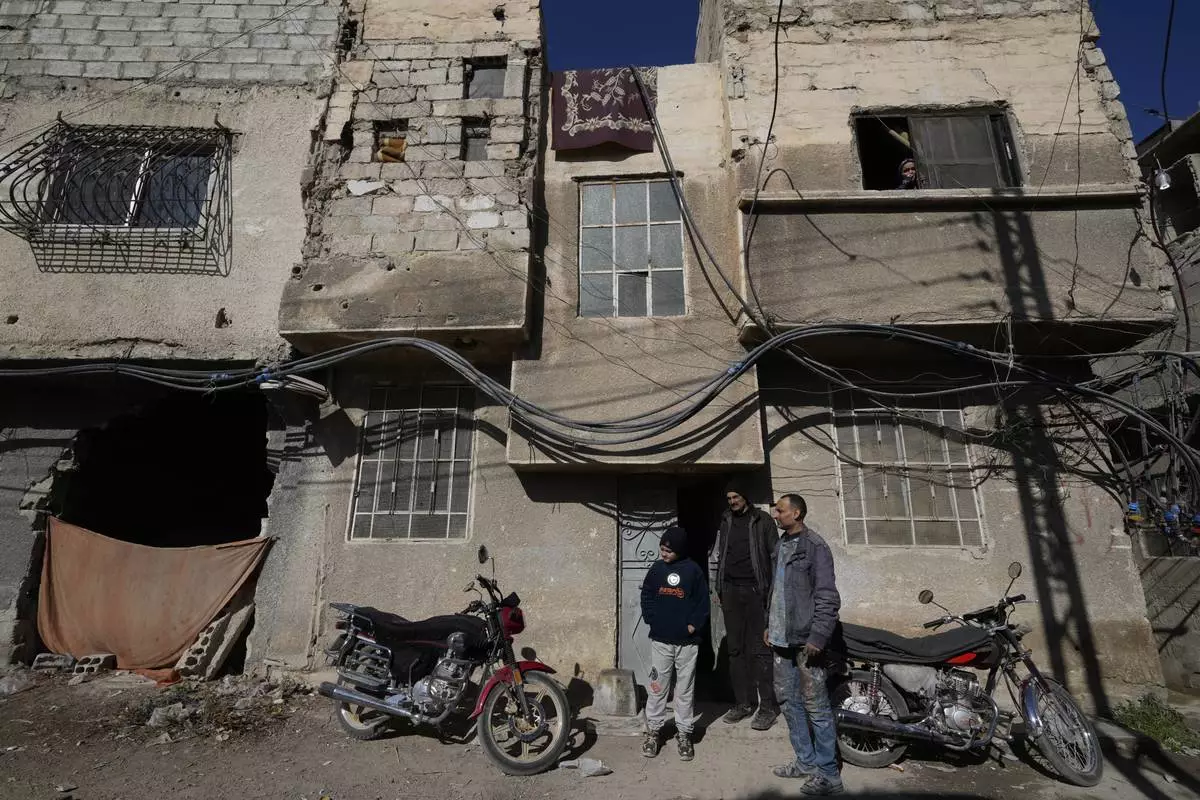
Hussein Arbeeni, 41, right, stands with his brother Hassan Arbeeni, 42, centre, outside their house at an alley that was hit by the sarin struck during a 2013 chemical weapons attack that was blamed on then President Bashar Assad's forces, in Zamalka neighbourhood, on the outskirts of Damascus, Syria, Wednesday, Dec. 25, 2024. (AP Photo/Hussein Malla)
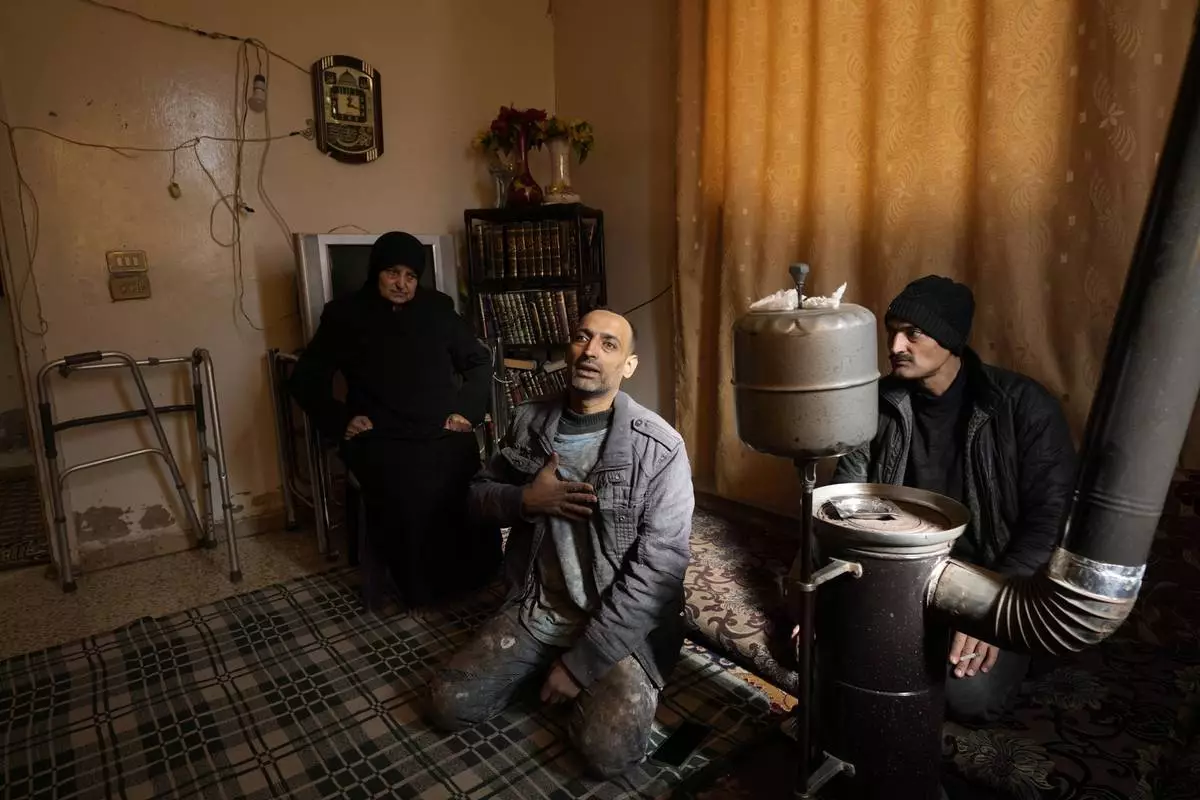
Hussein Arbeeni, 41, centre, sits between his mother mother Khadija Dabbas, 66, left, and his brother Hassan Arbeeni, 42, right, explains how he suffered from the sarin struck during a 2013 chemical weapons attack that was blamed on then President Bashar Assad's forces, in Zamalka neighbourhood, on the outskirts of Damascus, Syria, Wednesday, Dec. 25, 2024. (AP Photo/Hussein Malla)
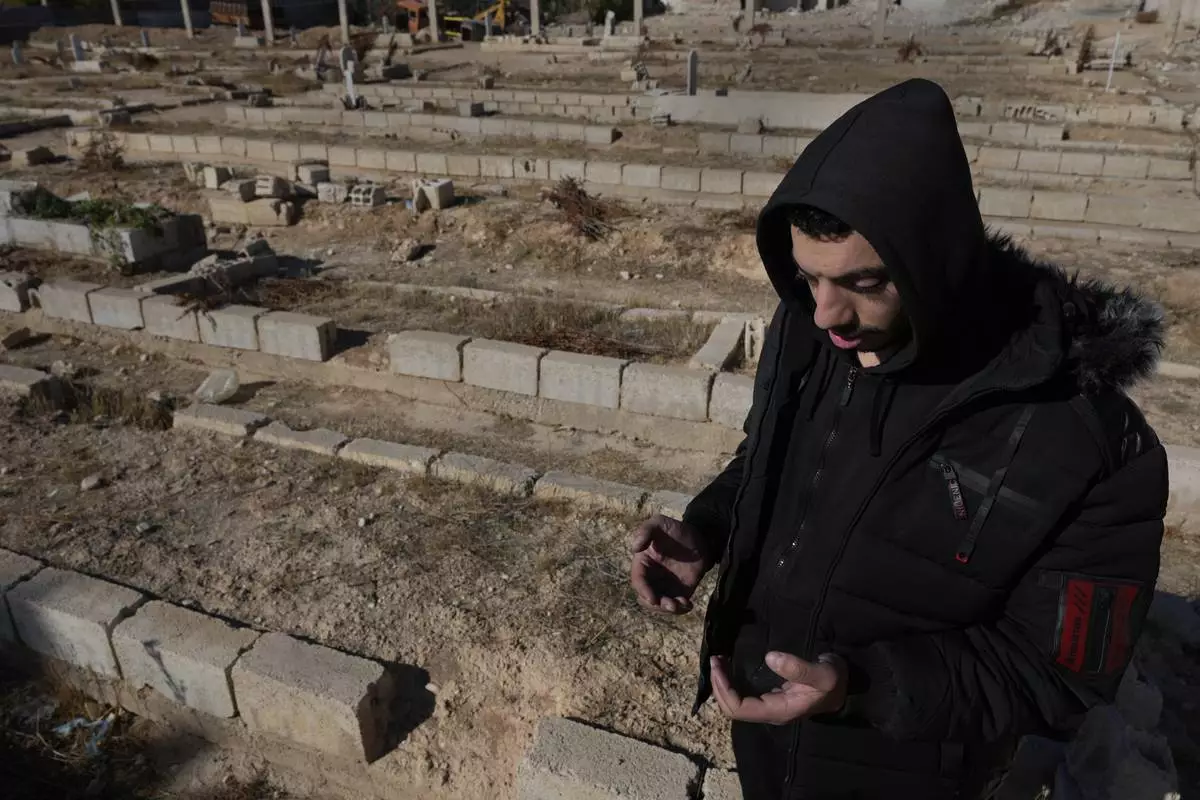
A Syrian man prays at a mass grave where they buried those who were killed by the sarin struck during a 2013 chemical weapons attack that was blamed on then President Bashar Assad's forces, in Zamalka neighbourhood, on the outskirts of Damascus, Syria, Wednesday, Dec. 25, 2024. (AP Photo/Hussein Malla)
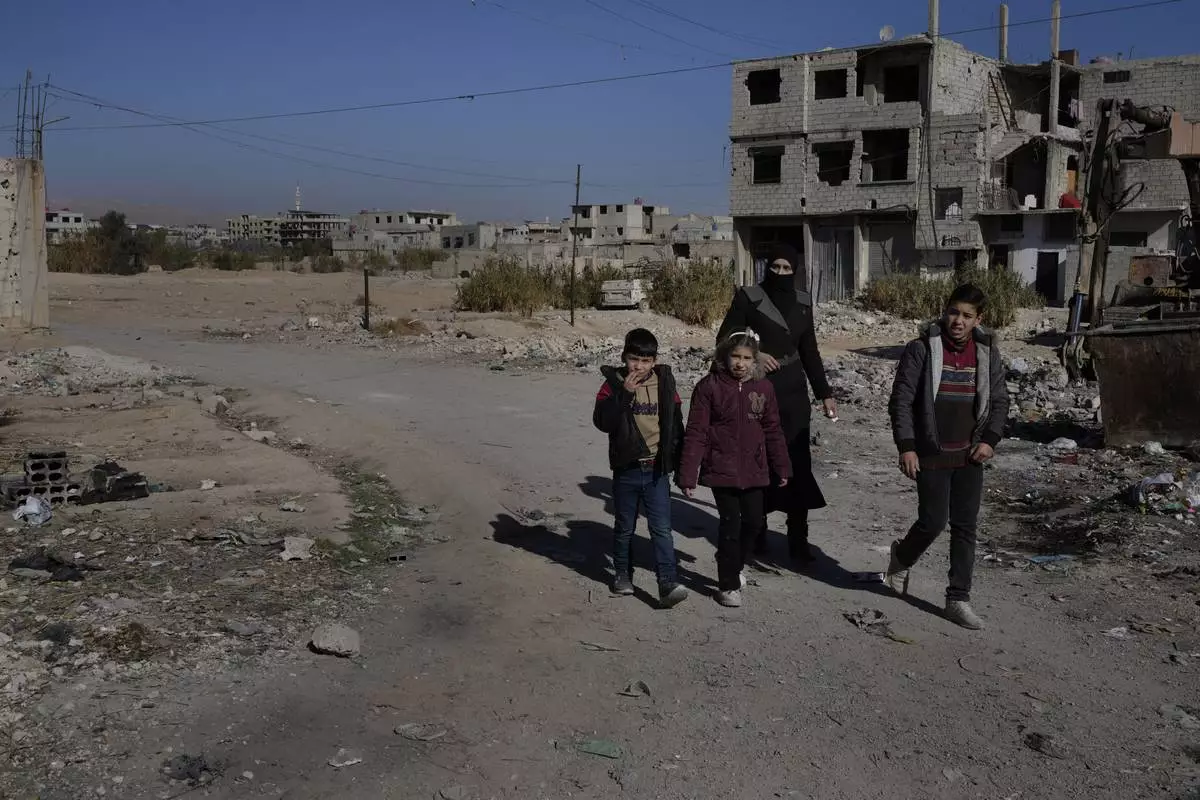
A Syrian family pass at an alley that was hit by the sarin struck during a 2013 chemical weapons attack that was blamed on then President Bashar Assad's forces, in Zamalka neighbourhood, on the outskirts of Damascus, Syria, Wednesday, Dec. 25, 2024. (AP Photo/Hussein Malla)
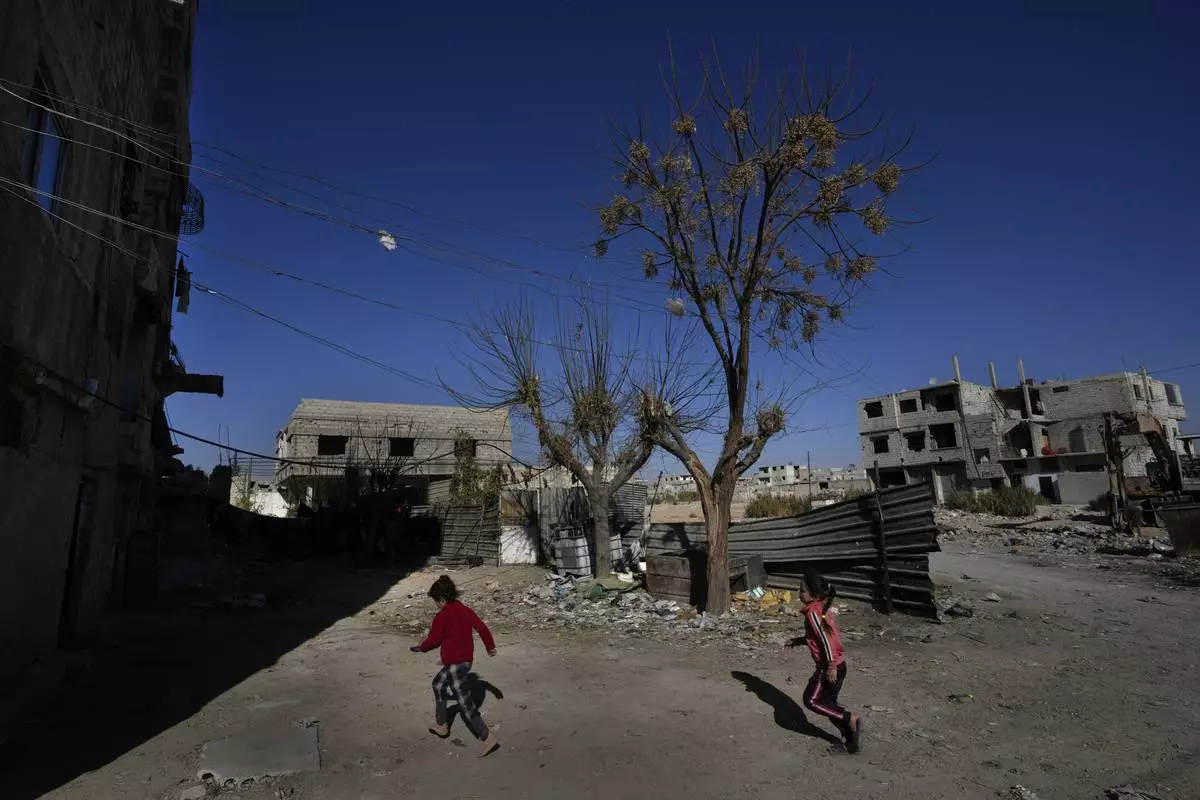
Syrian girls plays at an alley that was hit by the sarin struck during a 2013 chemical weapons attack that was blamed on then President Bashar Assad's forces, in Zamalka neighbourhood, on the outskirts of Damascus, Syria, Wednesday, Dec. 25, 2024. (AP Photo/Hussein Malla)
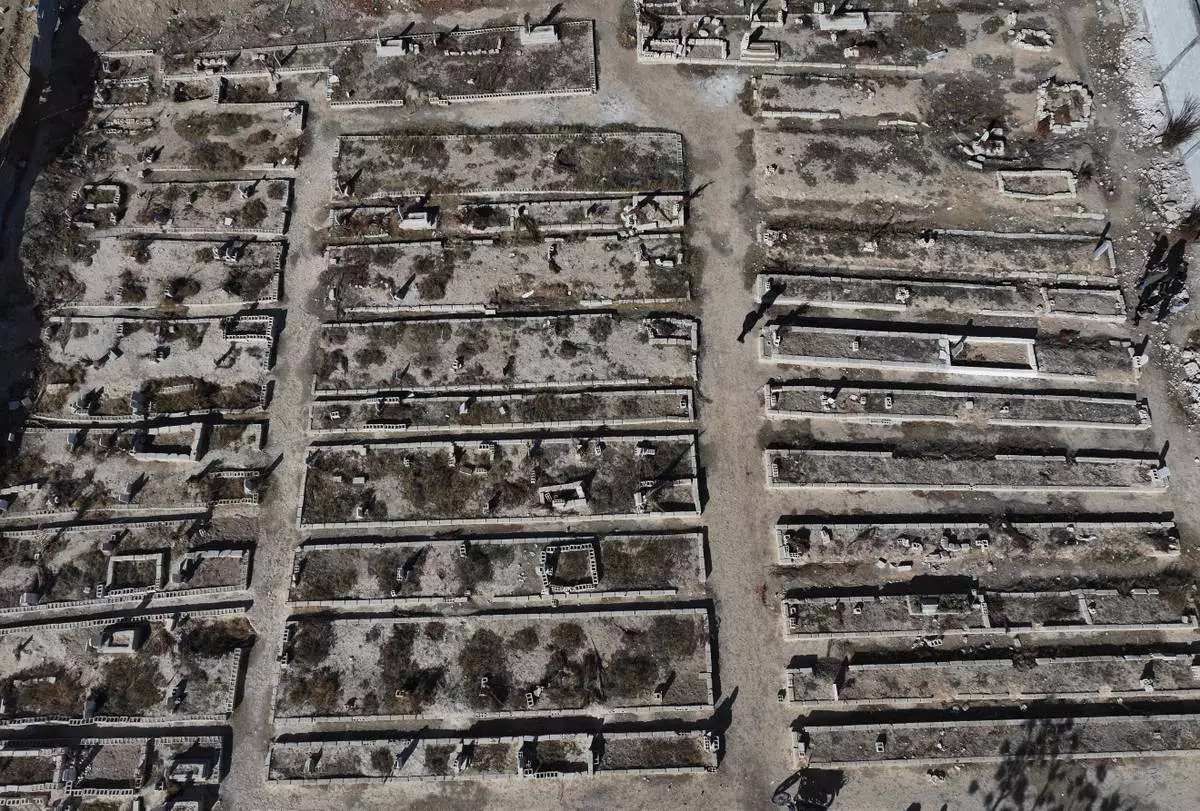
An arial view shows a mass grave where are buried those who were killed by the sarin struck during a 2013 chemical weapons attack that was blamed on then President Bashar Assad's forces, in Zamalka neighbourhood, on the outskirts of Damascus, Syria, Wednesday, Dec. 25, 2024. (AP Photo/Hussein Malla)
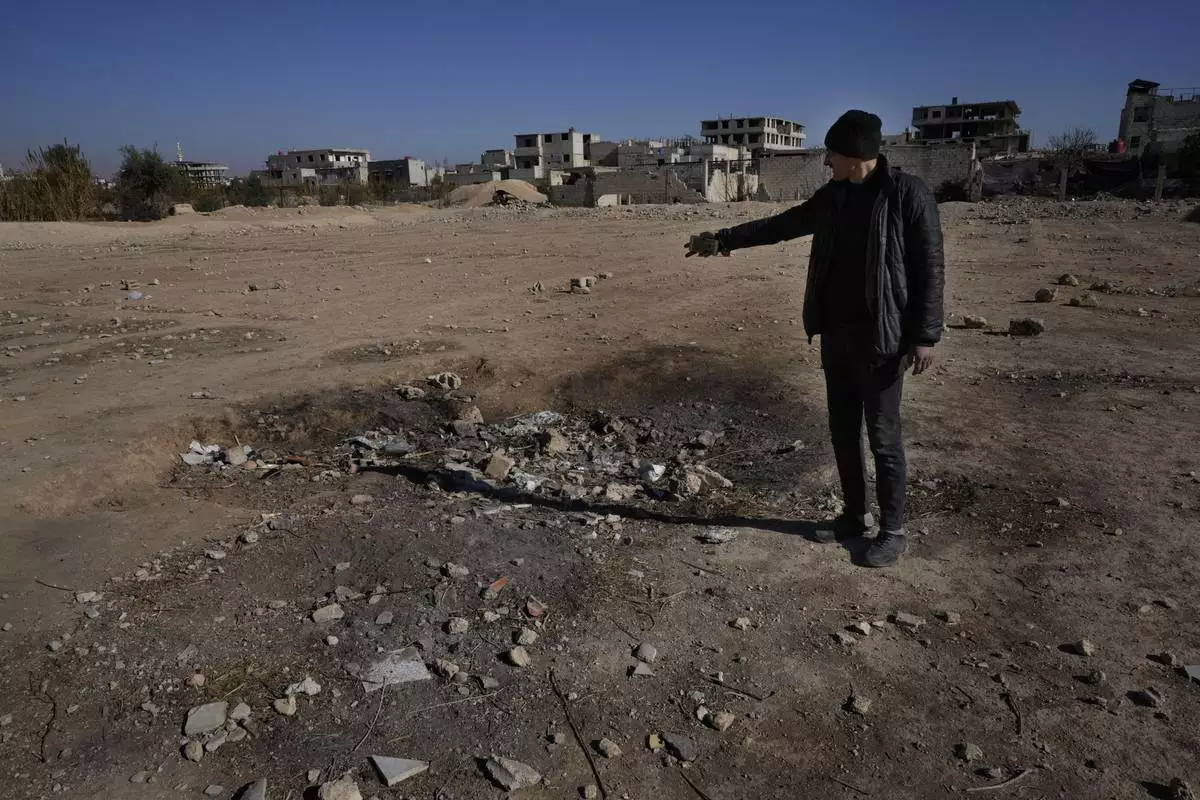
Hassan Arbeeni, 42, shows a crater where a surface-to-surface missile loaded with sarin struck, during a 2013 chemical weapons attack that was blamed on then President Bashar Assad's forces, in Zamalka neighbourhood, on the outskirts of Damascus, Syria, Wednesday, Dec. 25, 2024. (AP Photo/Hussein Malla)
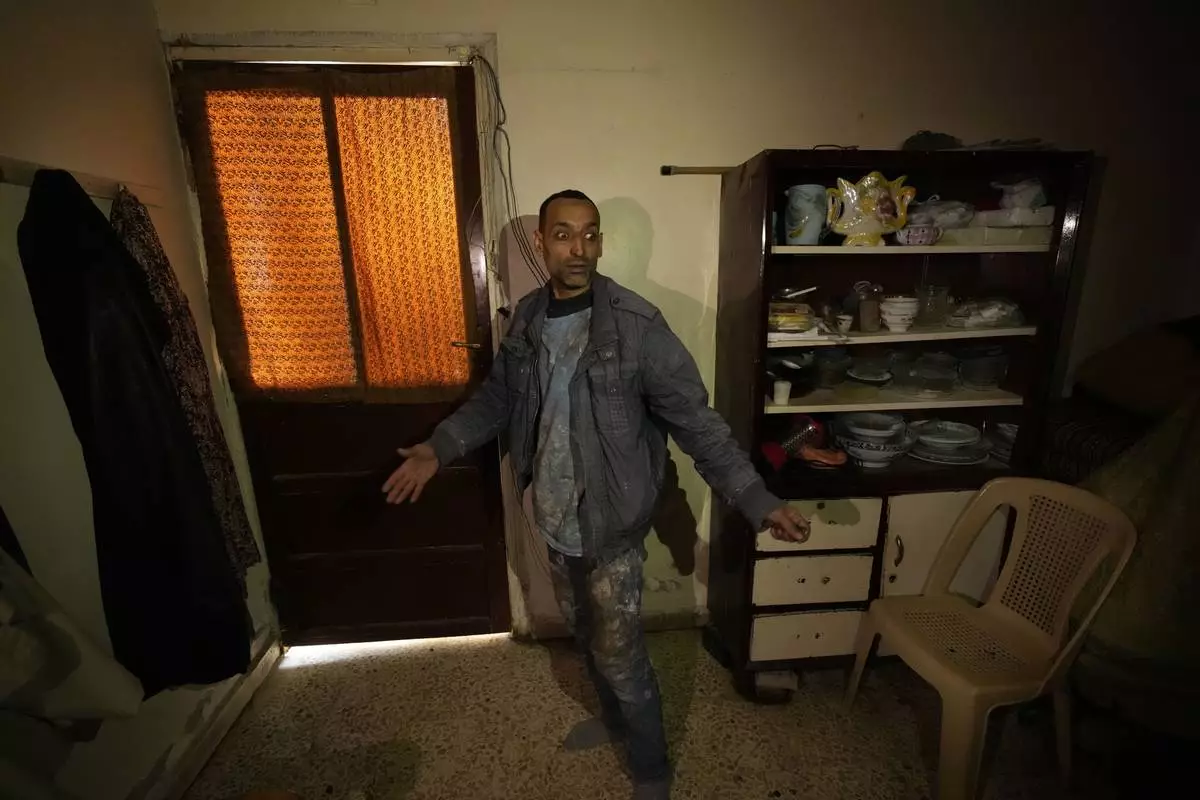
Hussein Arbeeni, 41, explains how 23 people locked themselves inside a room and put tape around the door to prevent leakage of the sarin struck during a 2013 chemical weapons attack that was blamed on then President Bashar Assad's forces, in Zamalka neighbourhood, on the outskirts of Damascus, Syria, Wednesday, Dec. 25, 2024. (AP Photo/Hussein Malla)





